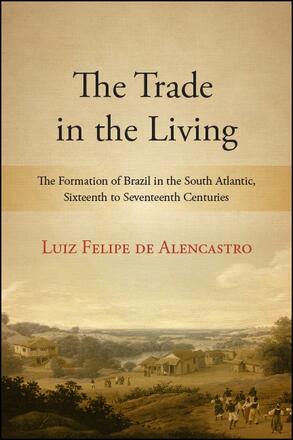
The Trade in the Living
The Formation of Brazil in the South Atlantic, Sixteenth to Seventeenth Centuries
Alternative formats available from:
Macro-level study of the South Atlantic throughout the sixteenth and seventeenth centuries demonstrating how Brazil’s emergence was built on the longest and most intense slave trade of the modern era.
Description
The seventeenth-century missionary and diplomat Father Antônio Vieira once observed that Brazil was nourished, animated, sustained, served, and conserved by the "sad blood" of the "black and unfortunate souls" imported from Angola. In The Trade in the Living, Luiz Felipe de Alencastro demonstrates how the African slave trade was an essential element in the South Atlantic and in the ongoing cohesion of Portuguese America, while at the same time the concrete interests of Brazilian colonists, dependent on Angolan slaves, were often violently asserted in Africa, to ensure men and commodities continued to move back and forth across the Atlantic. In exposing this intricate and complementary relationship between two non-European continents, de Alencastro has fashioned a new and challenging examination of colonial Brazil, one that moves beyond its relationship with Portugal to discover a darker, hidden history.
Luiz Felipe de Alencastro is Professor of Economic History at the Sao Paulo School of Economics, Director of the Center for South Atlantic Studies, and Emeritus Professor of History at the University of Paris, Sorbonne.
Reviews
"Published in 2000 … Alencastro's work remains, in its scholarship, detail, and argumentative rigor, the benchmark for an integrated sixteenth- and seventeenth-century South Atlantic history. The relevance of the work twenty years on is indisputable." — H-Net Review (H-LatAm)
"The author's command of written and archival sources is impressive, the writing is sometimes brilliant and usually provocative … The Trade in the Living must be considered a major accomplishment that has changed the way that both Brazilian and Angolan history is conceived, and reconceptualizes the place and importance of the South Atlantic in the history of slavery." — Slavery & Abolition
"This is a long, detailed book, with many fascinating details and discussions outlining sea routes, the origins of the laws governing slavery, diplomatic relations Europeans developed with African and Native American societies, changes in banking practices and the transformation of capital investment to take advantage of the profits the slave trade offered." — Society for U.S. Intellectual History
"…an important contribution to Anglophone literature on Atlantic history and the history of the Atlantic slave trade … Highly recommended." — CHOICE